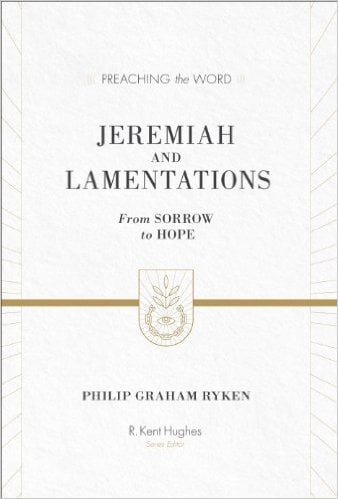⏱️ Estimated Reading Time: 3 min read
Many of us come to the Major or Minor Prophets of Scripture and we feel like we’re preparing to summit a difficult mountain range. They’re complex to read and understand, even hard to read given the often negative and harsh language we see in their writings. They’re also difficult to apply to our own context, not to mention they take a lot of time and effort to traverse. The Prophets may pose us some difficulties, but, like climbing to the top of a mountain, the view is worth it all once you’re there.
In my own commitment to become more familiar with the prophetic writings of Scripture, I have gladly welcomed aids along the journey, and one of those significant aids during my study of the book Jeremiah has been Phil Ryken’s commentary in the Preaching the Word series. It is as if this series was almost made for books like Jeremiah and Lamentations. The Preaching the Word commentary series is a helpful tool written by pastors, for pastors. It is a massive help in quite literally preaching the Word, and offers us a helping hand during our sometimes-difficult studies through books like Jeremiah, where areas like gospel-centrality and present-day application can be a little tougher to discern. Ryken’s volume particularly has been a breath of fresh air in combining solid biblical study with practical wisdom for living in today’s world and preaching to today’s congregations.
The subtitle “From Sorrow to Hope” is an apt four-word summation of what this volume’s material is set on. Ryken holds no punches back in declaring that the people of God throughout this book have given themselves over to spiritual adultery (i.e. Chapter 3), only to the fault of themselves. There is much to see here in these passages about the wickedness of the human heart, the implications of a fallen world, and what separation from God does to us. And yet, despite the faithlessness of Israel, God remains faithful, never failing (i.e. Chapter 48) and ultimately promising an everlasting King to come (Chapter 30). The themes of sin, mercy, righteousness, holiness, and God’s attributes, among others, soak these pages.
One thing that might deter you is the size of the book. It’s admittedly dense, weighing in at 832 pages. And here we thought Jeremiah was a long book! Yet I found as I studied these sermons and passages chapter by chapter, that I didn’t notice getting bogged down in the size of the book. This has much to do with Ryken’s style or preaching and writing. It is highly engaging, relatable, and deeply insightful.
Ryken is a gifted preacher and communicator. These sermons-turned-commentary-chapters are not only a great aid to the layperson seeking to better understand Jeremiah and Lamentations but wonderful for the preacher seeking to better preach Jeremiah and Lamentations. I commend this series, and this excellent volume, to each of you to help you in the journey of discovering the many riches hidden within the towering works of the Prophets.




